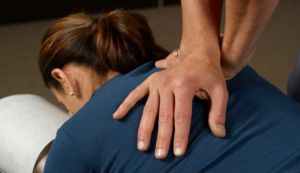Easy Tips For Maintaining Your Health During Your Travels
For many, traveling abroad is one of the most rewarding experiences ever. At times it’s going to a favored vacation spot in order to get away from the grind of a routine, or possibly a leap into the new and unfamiliar. Whatever the case, traveling can open up numerous opportunities for cultural enrichment and life experience. But if approached haphazardly travel can also be extremely exhausting. Taking some precautions and ensuring you maintain healthy habits on the road can significantly improve your chances of remaining in top condition.
Get enough Sleep and Rest
Under normal circumstances, we are advised to spend nearly a third of our time in bed at rest. On a trip, this sleep schedule can become significantly disrupted. The excitement of a trip can make resting difficult, sleeping during a long ride in any vehicle is arduous in general, and sometimes even well-appointed lodgings can be unfamiliar enough so as to cause discomfort or preventing relaxation. If this goes on too long, your body may lack the rest it needs to properly function, opening up the risk of injury or sickness. Make a concerted effort to get a good sleep before any trip. Sleeping in vehicles is often tricky because you are typically sitting upright and your neck folds in on itself if your head sags in any direction whatsoever. Consider investing in a “travel pillow” that can gently wrap around your neck and give you more flexibility sleeping in a moving vehicle. Skimping on sleep is bad news on a typical day. Avoid doing so while traveling to make sure you are alert and attentive.
Stay Active
When you are traveling, either on business or vacation, it can be tempting to skip any routine workouts you may have set up. While a case might be made for taking a break, regular exercise is vital for your body to operate optimally. And while it can seem cumbersome to find time or space to work out while abroad, many services have become practically standard in order to fill this need. Many hotels come equipped with gyms or a pool, the availability of which you can easily check for before booking a room. If a dedicated gym facility is not available, there are a wide variety of stretches and exercises that can be readily performed within the confines of a typical hotel room. Another means of staying active is incorporating as much walking into the trip as possible. It is undoubtedly convenient and at times will be absolutely necessary to use taxis, Uber, mass transit, etc. to get around. But if you find yourself with destinations within walking distance, consider walking in order to get some exercise, save money on travel fees, and become more involved with the environment you have traveled to. On a related note, it is also essential to make sure you stay hydrated while on the road. It is true that while in transit, access to water can seemingly get stuck behind paywalls, particularly at airports, hotels, restaurants, etc. But investing in a traveling water bottle can go a long way in controlling your access to water when you need it. Just keep in mind that most airport security checks will not permit you to get past with liquid, but you should be able to carry an empty bottle right through.
Wash your Hands
This sounds like a basic one, but in the bustle of a traveling expedition, you may be tempted to let this one slide more than you usually would. When you are navigating an unfamiliar environment, it is more important than ever to cover routine hygiene, to ensure you don’t catch an unexpected illness during your travels but also to prevent carrying it back home. Soap and water are usually widely available, but wet naps and hand sanitizer are also very viable choices. As personal sanitation products have risen in popularity, they have become more accessible in convenient travel sizes.

Medicine and Medical Professional Consultation
When traveling, you naturally do not want to concern yourself with packing the contents of your medicine cabinet. But having a travel kit with some emergency essentials can be well worth it.
Some ibuprofen or similar headache medicine can be a lifesaver on a, particularly arduous journey. If traveling makes you motion sick, a product like Dramamine can take the edge off long periods of transit by car, plane, boat, etc. If you find yourself in a bout of digestive distress, you may be glad to have holdout amounts of antacid or Pepto-Bismol available. If you are touring gardens or zoos but have a problem with dander or pollen, an anti-histamine may keep your allergies at bay so you can enjoy your environment.
Additionally, if you have certain conditions that require special care, you may need to consult a doctor or specialized medical professional to make sure you are prepared to handle it on the road. If you need specific prescriptions, you naturally want to make sure you have an ample supply on hand. If you are managing an illness or injury, you may want to get some advice from a doctor tailored to the journey you are about to undertake. One thing about travel is that between all the time on your feet, and depending on the luggage you are hauling, it can become pretty rough on your back. A chiropractor deals specifically in the health and maintenance of the neck and spine, which you may come to heavily rely on during a long trip. You might want to consider visiting a chiropractor before and after traveling to make sure your back is being adequately taken care of.
Traveling tends to be a transient, impermanent activity inherently. That is, during your trip, you may have a finite window to make the memories you originally intended to. The last thing you want to remember from your trip was how sick or hurt you felt. Taking special care to keep your health up will pay off in the long run and ensure that you are prepared to tread the path before you.





